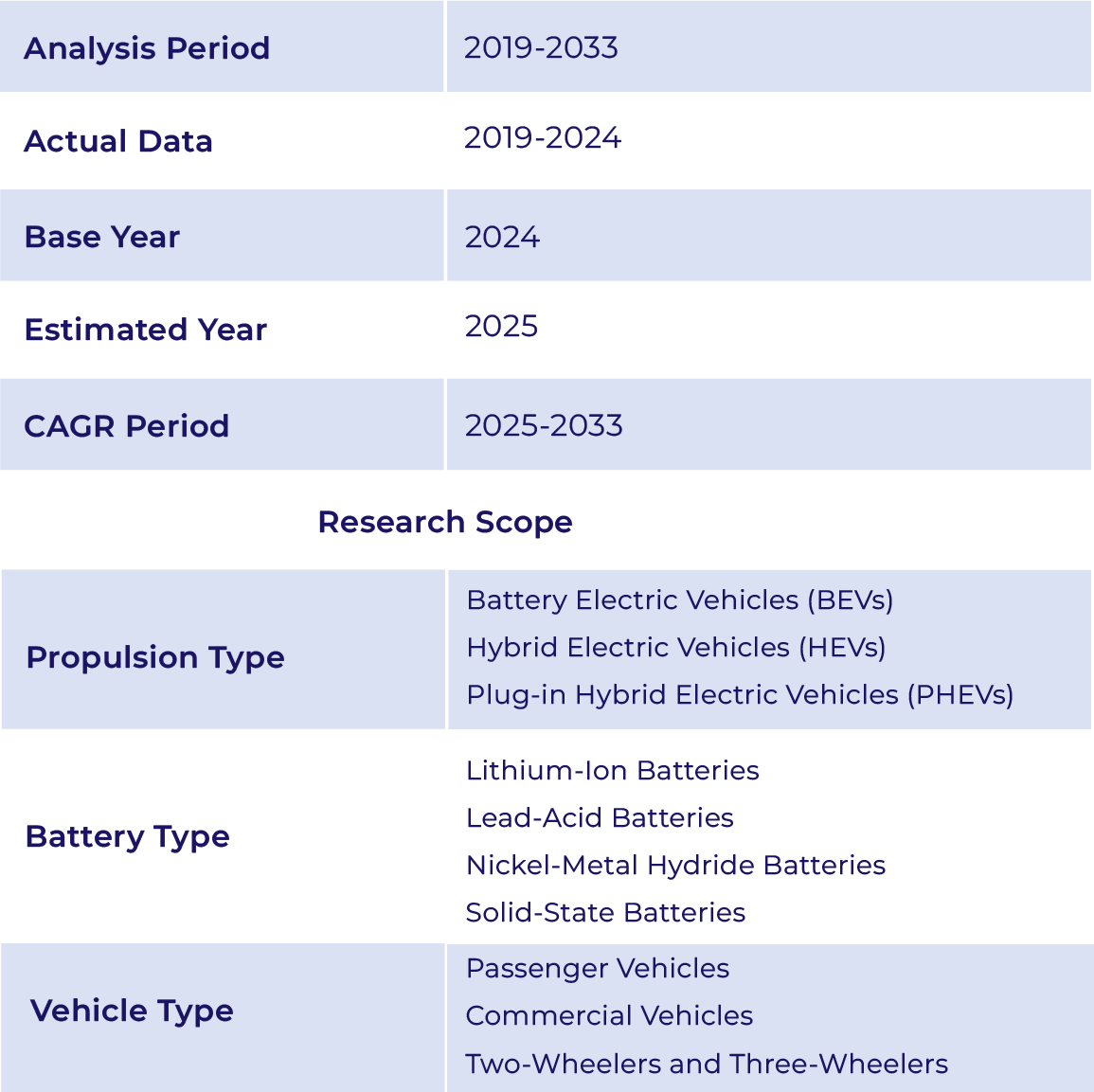Nigeria Electric Vehicle Battery Market Growth and Performance
- Driven by growing demand, the EV battery market in the Philippines grew by XX% in 2024, bringing its total valuation to US$ XX million.
- Looking ahead, the market is likely to grow at a CAGR of XX% through 2033, reaching an estimated US$ XX million.
Nigeria Electric Vehicle Battery Market Outlook
Nigeria's electric vehicle (EV) battery market is entering a transformative phase with innovative infrastructure leading the charge. In May 2024, Qoray unveiled Nigeria’s first fully solar-powered EV battery swap station, marking a significant milestone in the country’s sustainable transportation journey. This development is not only a leap forward for EV adoption in Nigeria but also demonstrates how solar energy integration can overcome infrastructure and energy limitations. The station provides an alternative to long charging times, allowing EV users to quickly exchange depleted batteries for fully charged ones—an efficient solution particularly suited to Nigeria’s often unstable electricity grid. By integrating renewable energy with EV battery services, Qoray’s initiative positions Nigeria as a model for sustainable EV infrastructure in West Africa. This pioneering move is expected to stimulate broader investment in battery technology, expand access to clean transportation, and pave the way for a resilient, green automotive industry.
Nigeria Electric Vehicle Battery Market Drivers
A significant catalyst driving Nigeria’s EV battery market is the surge in two-wheeler electric mobility solutions, particularly in high-density urban and peri-urban areas. In June 2024, initiatives to launch motorcycle battery swapping stations in Ogun State were officially announced, reflecting an innovative approach to the challenges of EV adoption in Nigeria. These stations aim to support electric motorcycles, which are increasingly seen as practical, affordable, and sustainable transport options for everyday commuting. The battery-swapping model eliminates range anxiety and long charging times, making EVs more attractive to commercial and informal sector operators. This development not only supports the growth of electric two-wheelers but also fuels the demand for modular, swappable lithium-ion battery technologies. As Nigeria grapples with rising fuel prices and environmental concerns, scalable battery-swapping infrastructure could revolutionize last-mile delivery and transportation services, thereby boosting local manufacturing, job creation, and cleaner air in urban centers.
Nigeria Electric Vehicle Battery Industry Trends
The electric vehicle battery industry in Nigeria is witnessing a major shift towards localization and regional leadership in EV technology. In May 2024, Spiro announced the launch of Nigeria’s first EV assembly plant, a major industrial advancement that will serve as a regional hub for West Africa’s electric vehicle market. This facility represents a strategic step toward reducing the country's reliance on vehicle imports and fostering local innovation. More importantly, the plant is expected to accelerate demand for domestically assembled EV batteries and battery components. The establishment of such a facility reflects a broader trend: integrating local EV production with battery supply chains to improve affordability, serviceability, and resilience. This trend not only enables Nigeria to support its growing population of EVs but also positions the nation as a center of innovation and manufacturing for the wider African region. As battery production ramps up, so will the demand for skilled labour and technological partnerships, spurring economic growth.
Nigeria Electric Vehicle Battery Industry Development
Strategic partnerships are laying the groundwork for Nigeria's long-term success in electric vehicle battery production. In April 2024, the Nigerian government entered into a landmark agreement with a Moroccan firm to boost local electric vehicle production capabilities. This cross-border collaboration is expected to transfer battery manufacturing technologies and provide access to critical components such as lithium cells and battery management systems. The partnership is designed to foster industrial-scale EV production and localize battery assembly to meet growing regional demand. By aligning industrial development with international expertise, Nigeria is positioning itself to become a competitive player in the African EV battery ecosystem. The initiative will also contribute to economic diversification, create jobs, and reduce the country's dependence on fossil fuels. As more global players see Nigeria as a manufacturing and assembly base, the local EV battery market is set for long-term growth underpinned by strategic policy alignment and international cooperation.
Nigeria Electric Vehicle Battery Market Scope







